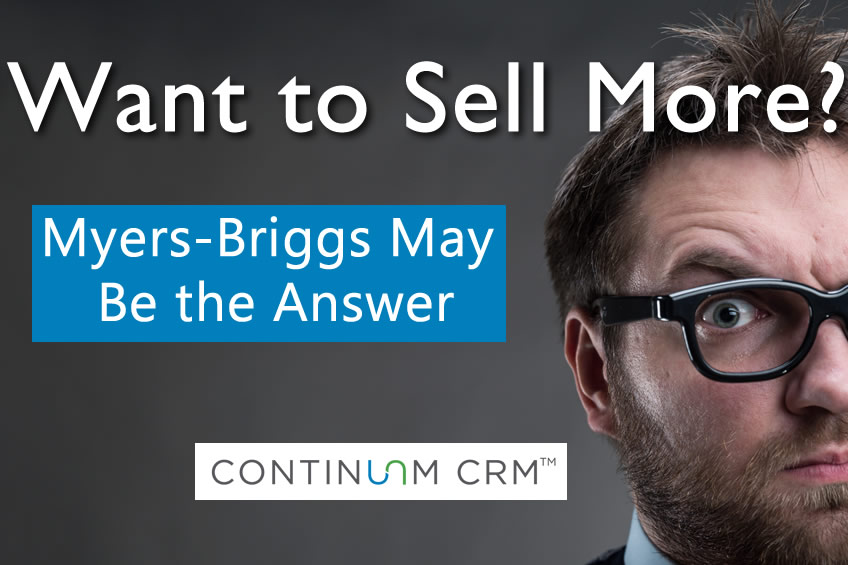
When you are considering buying something, how do you make the decision? Would you be surprised if I told you that a big part of it depends upon your personality?
I learned about the important role personality plays in the decision process back when I was running sales training programs for a large company many years ago. We devoted two days out the first week of training to Myers-Briggs testing. For those of you not familiar with Myers-Briggs, it is an adaptation of the theory of psychological types produced by Carl Gustav Jung. The idea behind using Myers-Briggs in sales training is that, by understanding their own personalities, salespeople can better understand their prospects’ personalities and how they impact their decisions. That way, the salesperson can adapt (or “flex”, as we called it) his/her own behavior to accommodate those of their prospects.
Interesting concept, right? That’s why the Myers-Briggs segment of training was by far my favorite and one of the first things we taught in our ten weeks of sales training. The reason it was taught this early on in our 10-week sales training program is that it affects everything you do in sales and even in how you relate to your colleagues, friends and yes, even your family. Without getting into a lot of details, I’ll briefly summarize the four areas of Myers-Briggs. (Keep in mind, as you read this, that most people don’t score 100% in any one area and everyone has at least some of their non dominate trait.)
Extraversion “E” or Introversion “I”
E’s like to talk, and they sometimes think by talking. They get energy from other people.
I’s tend to be quieter. Their energy tends to become depleted from interaction with other people. They may talk a little slower and need more time to think when engaged with someone.
Sensing “S” or Intuition “N”
S’s need facts and reality. They tend to be more focused on the details.
N’s are more interested in looking at possibility and potential. They want to see the big picture.
Thinking “T” or Feeling “F”
T’s tend to make decisions based on logic and analytics.
F’s are more likely to focus on how they feel about something.
Judgment “J” or Perception “P”
J’s are more structured and always on time.
P’s tend to be more willing to “go with the flow” and be more flexible. P’s have a tendency not be on time.
By the way, I am an ENTJ. I like to talk, I tend to see the big picture instead of all the details, I make my decision based on the facts, and I am always on time (or, in my case, 20 minutes early).
I test at about 55% on the first three areas but strong on the “J”. So, I find it easy to flex my personality traits to match the person I’m interacting with. According to sales management best practices, that makes me pretty much an ideal salesperson. That’s why, by the way, candidates for sales positions are often asked to take the Meyers-Briggs test as part of the interview process. Those who score too high in the first three areas may find it harder to adjust, or flex, their styles to accommodate prospects.
And being able to flex is important. Because, if your prospect is a “F”, they are most likely going to react to how your community makes them feel. If your prospect is a T, they may be inclined to seek more details about the community. So, as a salesperson, you need to be able to flex your own behavior to meet your prospect’s personality.
You’re probably wondering how you’re supposed to know if a prospect is an “F” or a “T” or something else altogether. Good question. Obviously, you’re not going to ask them what they scored on the Meyers-Briggs test! But, by understanding the Myers-Briggs personality profiles and using your observation and active listening skills, you can get a better sense of your prospect’s natural tendencies and adjust your own behavior accordingly. By the way, it is also important to understand the personalities of family members who are involved in the decision–making process of their aging loved ones.
The bottom line is that the more you know about your own personality and that of our prospects, the better. Whether you use Myers-Briggs or another tool, the insight you gain will add value to your team and, when used strategically, will help you market and sell more effectively.
Give us a call at 800-570-6030 and see how Continuum CRM can improve your sales and marketing effectiveness without breaking the bank. Or, feel free to visit our website www.continuumcrm.com to learn more.